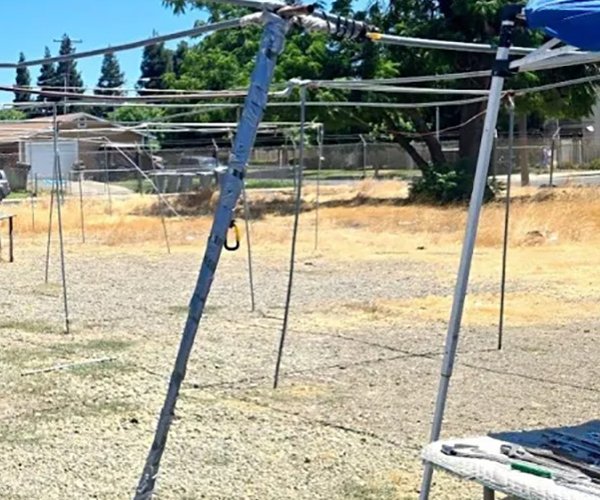Stanislaus County supervisors have unanimously approved an indoor cannabis operation west of Keyes in the home of Ragtime player pianos.
The county Planning Commission recommended approval of a Conditional Use Permit (CUP) and a five-year developer agreement on June 6 for Golden Purpose to operate the cannabis business in an industrial park west of Highway 99 at 4218 Jessup Road just north of Keyes Road.
On July 30 the Board of Supervisors voted 5-0 to approve it.
The applicant proposes to establish a commercial cannabis indoor cultivation, processing and distribution operation within two existing warehouses totaling 7,400 square feet and a proposed 12,000-square-foot building to be developed on the southeastern portion of the site to allow for an additional 2,600 square feet of cultivation canopy space. The project also proposes fencing of the site, restrooms for employees, an office, storage area, and the keeping of mother and nursery plants to feed the cultivation activities. At full buildout, the business is expected to employ 13 employees.
The building closest to Jessup Road will not be used for cultivation until 2020.
The indoor operation includes cultivation rooms, a nursery room, a trimming room, a processing and packaging room, distribution rooms, and offices and employee restrooms.
Under the county’s regulatory ordinance for cannabis operations, there is a 600-foot buffer for cannabis businesses from schools, youth centers and day cares, a 200-foot buffer from residences, as well as odor control, employee background checks and other security measures.
Patrick Sullivan, the representative for the project, noted that the existing buildings have no windows and have steel doors with commercial locks with keypad entries, the site has a secure fence, there will be an armed security guard during operating hours, 24/7 security camera and motion sensor monitoring which reports directly to a security service, and an on-site caretaker. The on-site caretaker will only be on-site until the new warehouse is completed, at which time the single-family dwelling to be used by the caretaker will be demolished.
The county gains revenue from cannabis operations in the unincorporated areas. The Keyes operation will pay the county $260,000 for indoor cultivation and the greater of $16,000 or three percent of gross receipts for being able to distribute from the site. The Community Benefit Contribution of $100,225 will be given to local charities, community programs and public projects with a primary focus on youth.
California voters approved Proposition 64 to legalize recreational marijuana and Stanislaus County leaders approved a program to allow for legally permitted operations and target the estimated 1,500 illegal marijuana growing and harvesting operations in the county.
“Enforcement is a critical component of the county cannabis program,” said Tera Chumley of the Stanislaus County Planning Department, “both for permitted and illegal activities.” She said a county task force was formed last year to combat the illegal operations with additional staff in the Sheriff’s Department, code enforcement and District Attorney’s Office, funded by the fees charged legal growers.
Chumley said each permit will be reviewed annually to check for compliance with all state and local laws.
The county has received 33 applications for cannabis operations within the unincorporated area.
Supervisor Jim DeMartini, no fan of marijuana businesses, asked why the state Department of Environmental Resources wouldn’t allow wastewater from the site to be placed in the septic tank system. The state is requiring separate containment because of the potential for contamination from fertilizers and the water will be tested. If found to be contaminated the water would have to go to a hazardous waste facility.
“I think the state would be better off not approving any of these things,” commented DeMartini, who went on to support the project being in an industrial area.
Neighbor James Wagner said he was concerned with traffic on the street. He was told the facility will not be a dispensary and no public travel to the site. He also asked if odors would be detectable.
“If you can smell it, we’ll be out there,” Supervisor Terry Withrow told Wagner.
Leslie Wagner expressed concern about the operation so close to her house and their small children. Withrow reminded her that the operation could be shut down for violations of the permit that might arise.
Supervisor Vito Chiesea suggested that if anyone has problems with odors, security or traffic to call the county.
“They want to be good operators,” said Chiesa.
“If it’s not working we’ll hear about it and we’ll shut it down,” Withrow cautioned the proponent.
In other action, supervisors approved a permit and developer agreement to establish a Commercial Cannabis Cultivation Operation in the industrial area north of the Modesto Airport. Supervisor Jim DeMartini cast the lone vote against and was outvoted by Withrow, Chiesa, Tom Berryhill and Kristin Olson.
The county Planning Commission was split 4-4 when the proposal by Prem Gen Corporation was considered on June 6.








